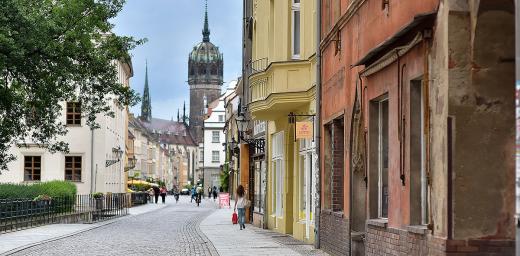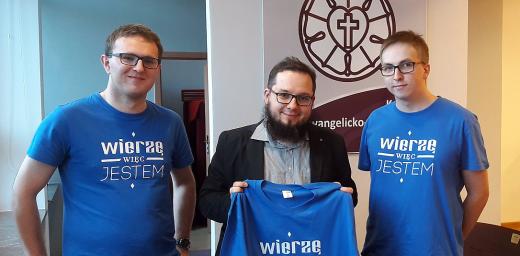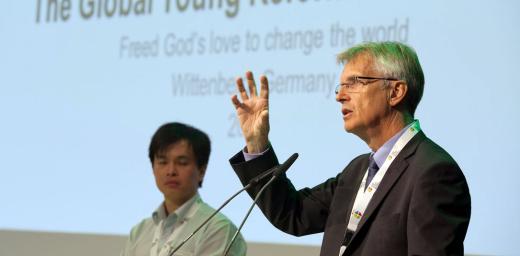Lutheran Reformation is a Global Citizen
(from left) Oberkirchenrat Norbert Denecke, LWF National Committee in Germany General Secretary; Rev. Martin Junge, LWF General Secretary; Stephan Dorgerloh, education minister of the state of Saxony-Anhalt; Rev. Anne Burghardt, LWF Secretary for Ecumenical Affairs. Photo: LWF/C. Kästner
(LWI) - Starting from Wittenberg in Saxony-Anhalt, the Reformation has become a global citizen. This idea was the theme of a meeting between Rev. Martin Junge, the general secretary of The Lutheran World Federation (LWF), and Stephan Dorgerloh, education minister of the state of Saxony-Anhalt, on 13 January 2014 in the Ecumenical Center in Geneva. Dorgerloh took the opportunity to find out about the activities of the LWF to mark the 500th anniversary of the Reformation in Wittenberg.
“The Reformer Martin Luther did not just initiate reforms and profound changes in central Germany, he also left footprints worldwide, that are visible and effective to this day,” Stephan Dorgerloh stated. “However, it is true that these footprints are particularly visible in Saxony-Anhalt and, above all, in the Luther towns of Wittenberg and Eisleben. Visitors from all over the world will be able to see that for themselves in 2017, the anniversary of the Reformation.”
The talks included a presentation of the LWF program of the Global Young Reformers Network. In the coming four years, this international network is designed to link up tens of thousands of young people worldwide in projects on the Reformation. A gathering of 175 delegates from all over the world is planned for 2015 in Wittenberg.
“Young people nowadays have a global view of things and are still active at the local level. This is a very valuable perspective when we are thinking about the role the Lutheran Church can play in the world today,” commented Rev. Martin Junge.
Furthermore, the LWF Council will convene in Wittenberg in 2016. Before the Council meeting, there is to be a two-day pilgrimage through the historical Luther sites. The idea is that, when following this itinerary together, participants will reflect on the journey of the Reformation throughout the whole world. “The second and third largest member churches of the LWF are to be found in Africa,” said Junge. “The Reformation has become a global citizen.”
Another anniversary project is the Luther Garden, which is jointly sponsored by the LWF and the City of Wittenberg.





